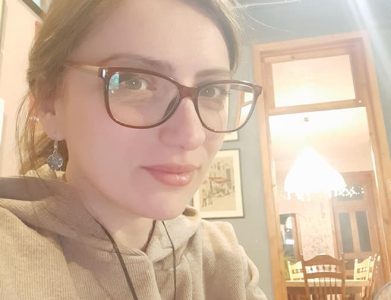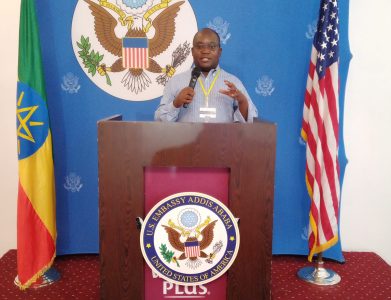A TechCamp is not a hackathon or a bootcamp. It’s not a typical conference for professionals, it’s not (usually) about writing code, and it’s not necessarily for people in a STEM field. So what is it? And what kinds of technology are we talking about?
TechCamp workshops are driving forces for change, fostering innovation through collaboration between technology experts and civil society audiences around the world. Each TechCamp provides training for participants on specific technologies and mentorship on project development strategies. Combined, this training and mentoring equips and empowers participants to address the most pressing global challenges.
The TechCamp team, housed in the U.S. State Department’s Bureau of Educational and Cultural Affairs, recruits technology experts and mentors to empower diverse participants making positive changes in their communities. Workshop participants might be journalists covering breaking news, content creators shaping narratives, NGO leaders managing brands, spokespeople conveying a public message, or researchers sifting through satellite imagery. Each workshop provides an interactive opportunity for experts and participants to learn from each other and learn about accessible technology to solve the challenges they’re facing.
What kind of tech are we talking about? Here are some examples!
- Advancing Artificial Intelligence (AI):
- At TechCamp Ohrid in North Macedonia, trainer Lauren Maffeo from SteamPunk led a session on Tips to Identify Machine-Generated Media. Using Design Thinking exercises, participants learned how to tell if images, articles, and other online content were altered from their original state. Generative AI tools make it easier than ever to influence how youth engage with the media, and creation of manipulated content could even outpace creation of original content soon. Lauren emphasized the importance of AI literacy in the classroom and how teachers play a crucial role in each student’s ability to differentiate between human-generated and AI-generated media.
- At TechCamp Belem in Brazil, trainer Cristina Taradguila’s training “The good and the bad about AI: how will it impact disinformation” reviewed the most important AI tools in the market (ChatGPT, Bard, Synthesia, Beautiful.ai, Midjourney, Stocking.ai, WriteSonic, Browse.ai and others) with a focus on how newsrooms can use them in real-life situations, including ethical questions involving AI and disinformation. The TechCamp convened local independent journalists from as far as the Amazon’s São Gabriel da Cachoeira, where AI-based technology could really help address the common challenges of ensuring natural resource sustainability and combating disinformation.

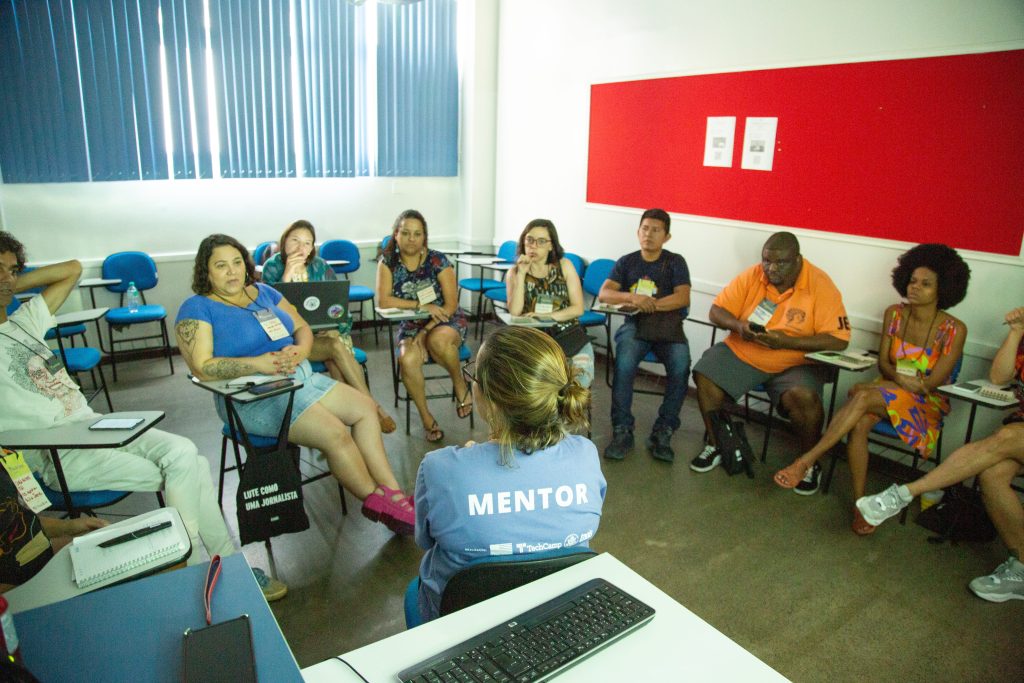
- Fueling Fact-Checking:
- At TechCamp Tbilisi in Georgia, key stakeholders specializing in media literacy identified tools for countering disinformation and promoting fact-checking in the Caucasus. Participant Manon Bokuchava, head of the regional media organization “Kvemo Kartli Media” aims to further Georgia’s engaged and well-informed citizenry with a project she developed at the TechCamp–“All About Pinocchios.” The project aims to use animations to inform the public on key disinformation messages spreading in Georgia while strengthening resilience to external malign influence. Also, small grant recipients at TokTV, an independent news organization, introduced Prokti – Fact or Fake, a mobile app to strengthen youth from diverse ethnic groups in Georgia to neutralize misinformation.
- At TechCamp Kazakhstan in Astana, combating disinformation began with connecting a network of civil society professionals from Kazakhstan and its neighbors Kyrgyzstan, Tajikistan, and Uzbekistan. A series of small-grant-funded projects focused on bridging digital tools and network resources in hard-to-reach areas, including a fact-checking community in Uzbekistan on factchecknet.uz. Also funded through a TechCamp small grant, a participant-led Kazakh school for critical thinking hosted a one-day field training for future journalists to receive fact-checking tools and analyze various case studies local to Central Asia.

- Simplifying Smartphones:
- At TechCamp Takoradi in Ghana, Mandolin Kahindi trained journalists and activists on professional videography exclusively with a smartphone. In Ghana’s western region, the small-scale mining sector is raising awareness about the environmental and public health impacts of illegal mining. This was a great opportunity to make technology accessible to help Ghanaian regulators, activists, academics, and journalists address the massive challenge of illegal mining with captivating videos.
At TechCamp Managua in Nicaragua, Fernando Augusto Contreras trained on how to maintain your digital brand on social networks with your phone. Mr. Contreras boasts a following of more than four million on Instagram. He has grown this audience through photography and simultaneously developed ways to monetize his content. He provided participants with access to his “Photo and Video Masterclass with Mobile,” a 100 percent digital venture with which has sold more than 2,500 registrations worldwide.
- Evolving Education:
- During TechCamp Istanbul in Turkey, Bahçeşehir University Game Lab (BUG Lab) brought together game designers, developers, industry mentors, and NGO representatives, pairing them with education specialists to produce video game-based solutions to tackle important issues in media literacy, women’s empowerment, and environmental sustainability. Six teams of game developers mentored by game industry experts created interactive games as tools for generating dialogue and empathy between diverse students in Turkey. Project Harmony, for example, is a game in which students try to maintain a sustainable system for citizens and develop a better future through innovations to avoid different conflicts and crises.
- TechCamp Morocco created linkages between students, educators, and cultural preservationists. Youth representing the Ifker Association won seed funding to support improving the accessibility of Volubilis, one of the largest and most important archaeological sites in Morocco, for disabled visitors. Participants created accessible 360° images and V/R experiences of Volubilis to educate visitors with disabilities and preserve historical, social, and cultural heritage. Using these emerging technologies captivates audiences on the importance of safeguarding the cultural and natural heritage of Morocco and its natives through the accessible study of archaeological sites, digitized documents of the mausoleums, and intangible cultural heritage like oral stories about generational cultural preservation.
- Deploying Data:
- At TechCamp Bishkek in Kyrgyzstan, U.S. air quality (AQ) scientists increased awareness of poor air quality and boosted government capacity to tackle the problem. After the initial TechCamp workshop, the U.S. Embassy held additional workshops to train regional stakeholders in data driven AQ analysis. Increases in awareness and technology have resulted in better available data on Bishkek’s air pollution, heightened public awareness of its health and economic consequences, and increased ties between the U.S. scientific community and Central Asian institutions. TechCamp trainers included well-known U.S. academics from Washington University in St. Louis and Johns Hopkins University as well as regional experts from Kazakhstan and the Kyrgyz Republic. Participants competed for funding to implement cross-border follow-on projects, which included developing low-cost AQ sensors, a practical use of technology that is boosting the capacity of Kyrgyz government ministries tasked with air quality policymaking to make informed decisions.
- At TechCamp Takoradi in Ghana, the power of technology-driven data utilization was on display. Through collaborations with the Centers for Disease Control and Prevention (CDC), USAID Ghana, USAID West Africa, NASA, the U.S. Geological Survey, and the University of Mines and Technology (UMAT), experts became adept at harnessing data to address mining issues. During training led by Foster Mensah from SERVIR, participants delved into leveraging remote sensing tools provided by NASA, empowering participants to address environmental impacts in the past year, as Ghana’s major waterways have been visibly polluted by illegal mining activity.
- At TechCamp Addis Ababa in Ethiopia, Ezinne Onwuekwe, the Vaccine Programme Coordinator for Africa Centres for Disease Control and Prevention (Africa CDC), is leading the COVID-19 vaccine data intelligence across the continent. As a public health expert and data analyst, her training focused on the power of data visualization to transform analytics into digestible representations for non-technical stakeholders working in multi-million dollar vaccine programs. Ez not only designs data visualization dashboards but also conducts surveys, maps cases, and produces advanced analytics for public and private sector partners on rapidly addressing preventable disease outbreaks.
- At TechCamp Belem in Brazil, trainer Marianna Araujo demonstrated the Fogo Cruzado – a platform to make Brazilian cities safer through the use of open technologies to combat armed violence, promote social transformation and save lives. Through Fogo Cruzado, Marianna developed a methodology for monitoring shootings in urban centers and their impacts on local citizens. After the development of an FC app, more than 20 new indicators on armed violence in the metropolitan regions of Rio and Recife were produced, and this will soon be replicated in other major Brazilian cities. Fogo Cruzado has been recognized nationally for its rapid ability to receive and redistribute information about shootings and firearm discharges, which has resulted in countless lives saved. Since 2016, FC has tracked over 53,000 shootings, 17,000 deaths and 13,000 wounded, resulting in the largest database of armed violence in Latin America.
- One of the projects that resulted from TechCamp Managua in Nicaragua is the ChatBot providing digital support for entrepreneurs starting businesses, created by entrepreneurs for budding entrepreneurs who don’t know where to start. The chatbot will answer a wide range of questions and concerns, guiding entrepreneurs to make informed decisions to start their businesses, from reflections on the planning phase to details on marketing strategies and legal considerations. By providing basic information digitally on instant messaging via WhatsApp and personalized online advice, potentially hundreds of entrepreneurs can begin the initial stage of their businesses.
- At NextGen TechCamp Nairobi in Kenya, participant Germaine Ashu developed Using Solar Waste (U-SOW), a project handling the rapidly increasing quantity of waste resulting from solar gadgets (panels, lamps etc) by recycling or upcycling, such that this solar waste doesn’t become a danger to the environment. With small grant funding received from the TechCamp, U-SOW consists of sensitization campaigns on mass media platforms, solar waste pick up activities, and training for 10 women as solar repair and recycle technicians. By building the community’s technical skills as solar and recycle technicians, Kenyans will be better able to enjoy the value-for-money spent to acquire solar gadgets (by repairing them when necessary) and save the environment by properly disposing of solar gadgets which are irreparable.
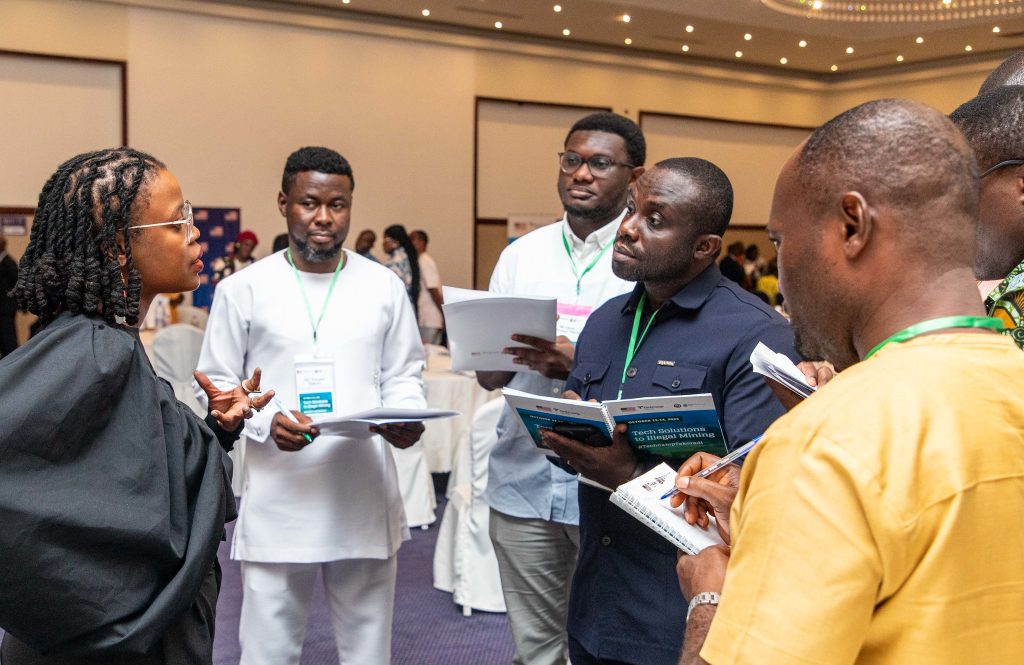
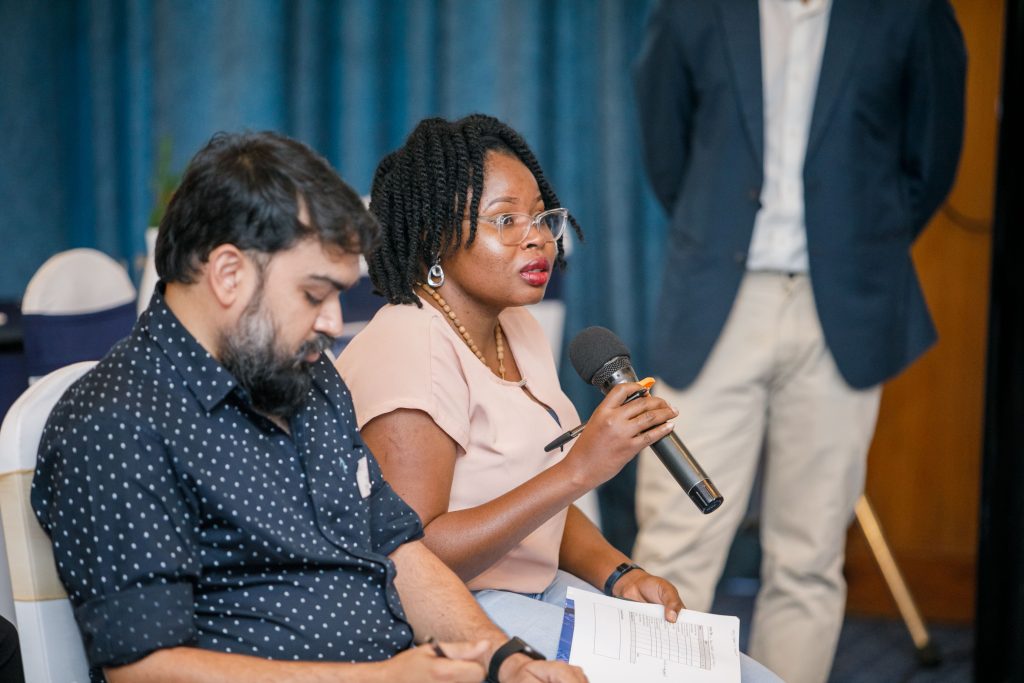
- Communicating in Crisis:
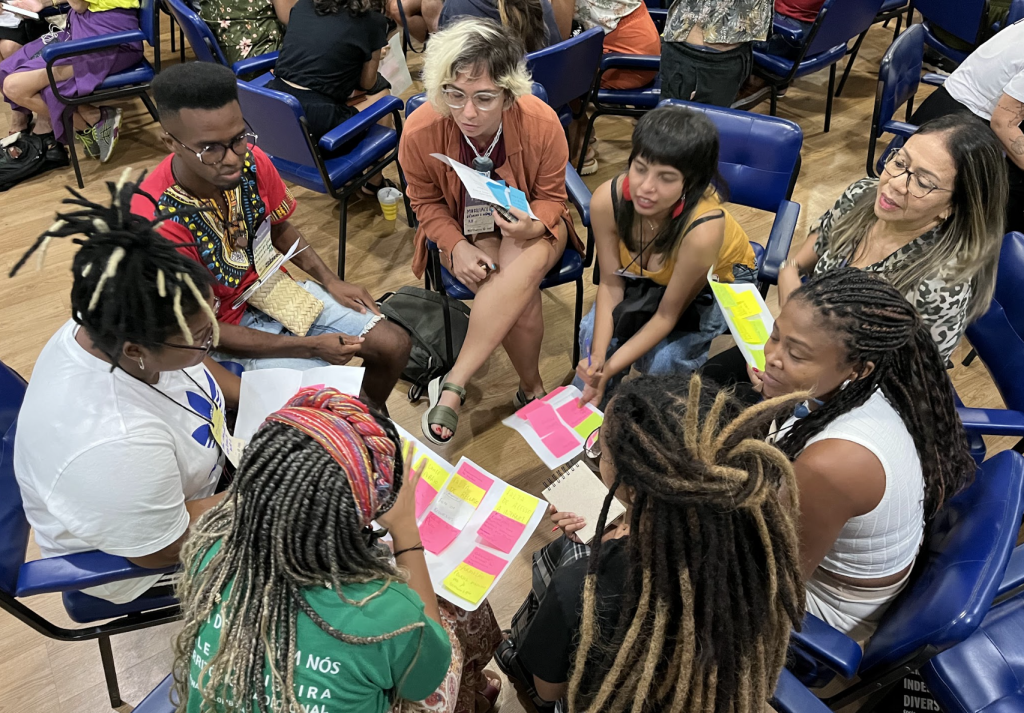
- Bettering Business:
Every TechCamp is different, but each one includes both a technology aspect and a mentorship aspect. Participants are led through a facilitated, mentor-led project development process while also learning about new tools that can equip them in their work. The TechCamp team, in collaboration with U.S. embassies and consulates around the world, designs each workshop to meet the needs of the participants. From AI to gaming and mobile video production to air quality measurement, the “tech” in TechCamp equips participants to be changemakers in their work.
